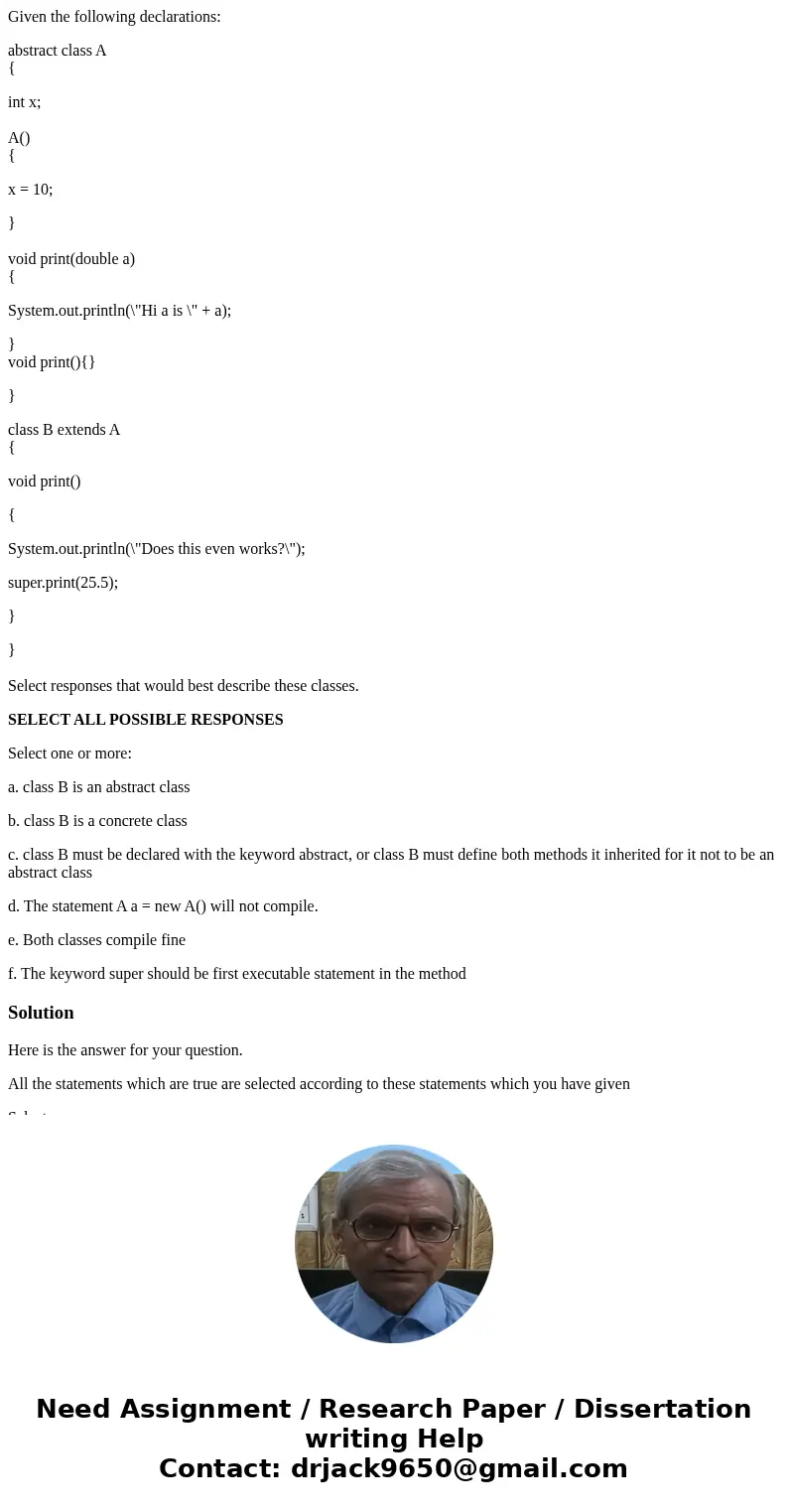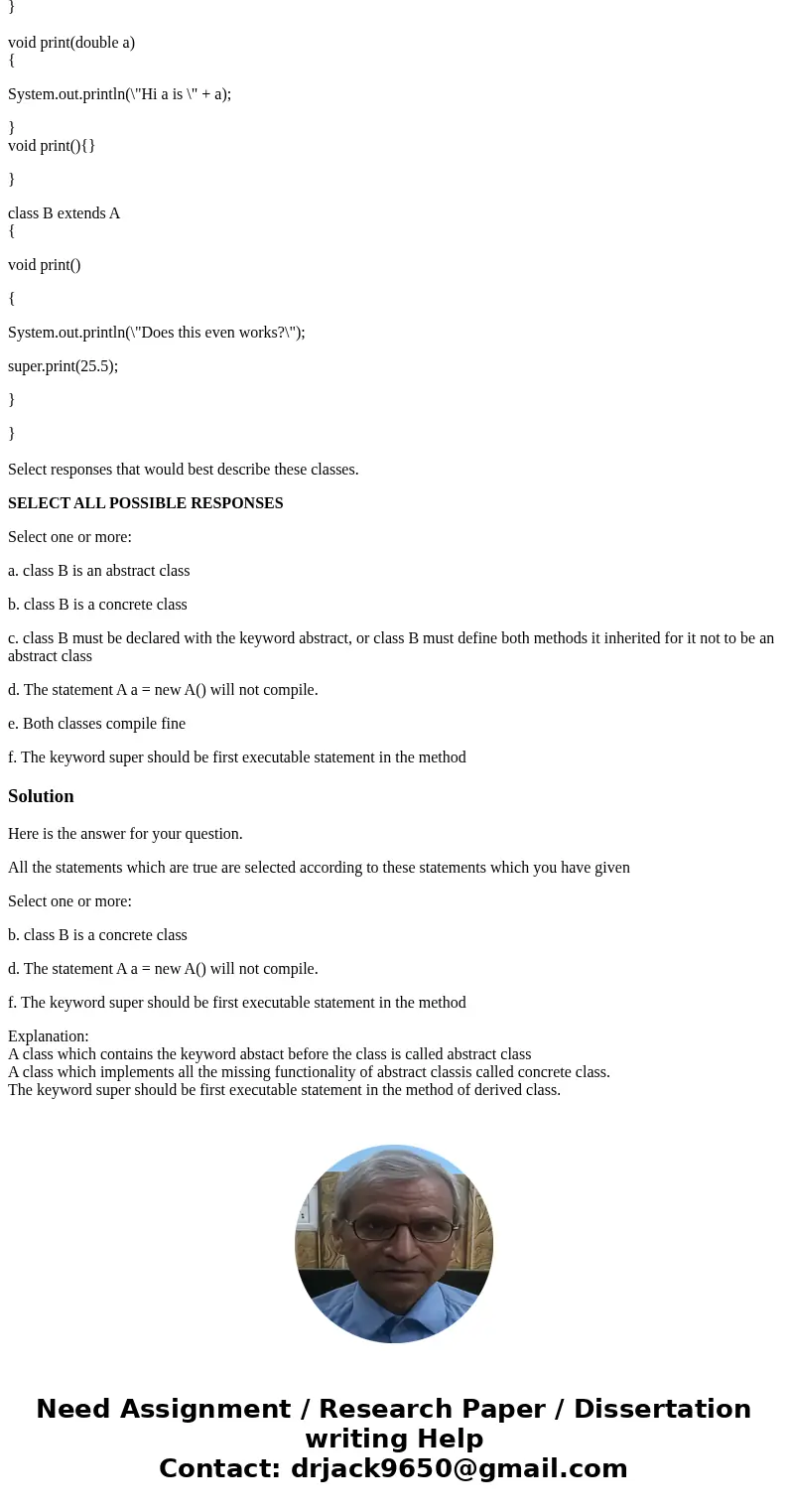Given the following declarations abstract class A int x A
Given the following declarations:
abstract class A
{
int x;
A()
{
x = 10;
}
void print(double a)
{
System.out.println(\"Hi a is \" + a);
}
void print(){}
}
class B extends A
{
void print()
{
System.out.println(\"Does this even works?\");
super.print(25.5);
}
}
Select responses that would best describe these classes.
SELECT ALL POSSIBLE RESPONSES
Select one or more:
a. class B is an abstract class
b. class B is a concrete class
c. class B must be declared with the keyword abstract, or class B must define both methods it inherited for it not to be an abstract class
d. The statement A a = new A() will not compile.
e. Both classes compile fine
f. The keyword super should be first executable statement in the method
Solution
Here is the answer for your question.
All the statements which are true are selected according to these statements which you have given
Select one or more:
b. class B is a concrete class
d. The statement A a = new A() will not compile.
f. The keyword super should be first executable statement in the method
Explanation:
A class which contains the keyword abstact before the class is called abstract class
A class which implements all the missing functionality of abstract classis called concrete class.
The keyword super should be first executable statement in the method of derived class.


 Homework Sourse
Homework Sourse